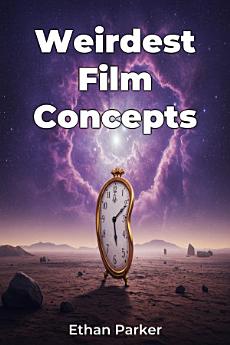Weirdest Film Concepts
O ovoj e-knjizi
The book traces the evolution of experimental cinema, revealing how avant-garde roots have influenced modern independent and studio-backed productions. It analyzes decision-making processes within film studios, highlighting the roles of producers and directors in championing these risky ventures. Through case studies, the book investigates films featuring experimental narratives and bizarre special effects, providing a comprehensive understanding of each film's journey.
Structured in three parts, the book first defines ""weird"" cinema, then delves into specific film examples, and finally synthesizes findings to understand how and why these films get made. By connecting film theory with art history and business management, Weirdest Film Concepts offers a unique perspective on the creative process, risk assessment, and the significance of unconventional filmmaking.








